Who to watch in Republican debate
- Published
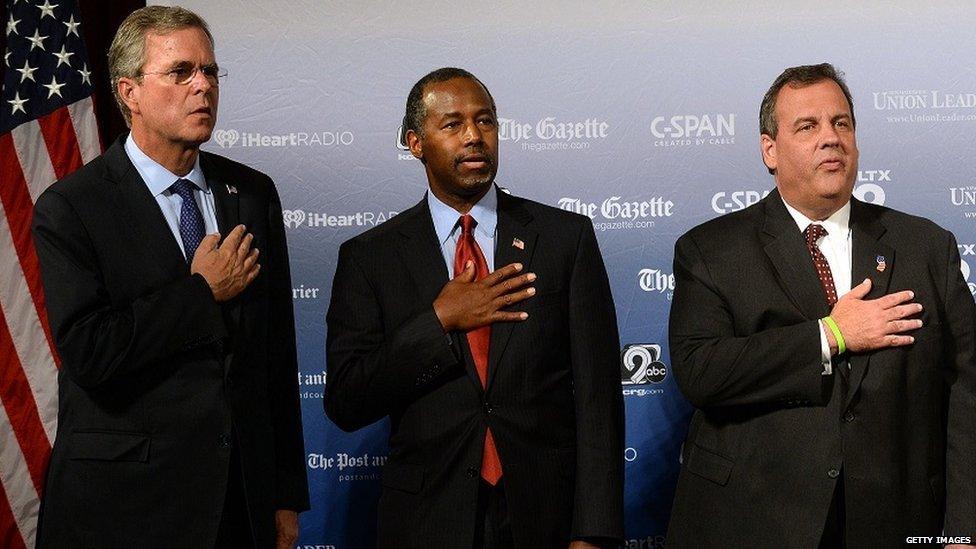
As much fun as it is to pick apart the politics and the personalities that will be on display on Thursday night in the Republican presidential debate, one of the men on the stage could become the next leader of the free world.
Serious times require serious consideration, and all that.
Keeping this in mind, here's a look at a selection of the Big Issues that may dominate Thursday's contest - and how they may play out among the candidates on the stage.

Immigration
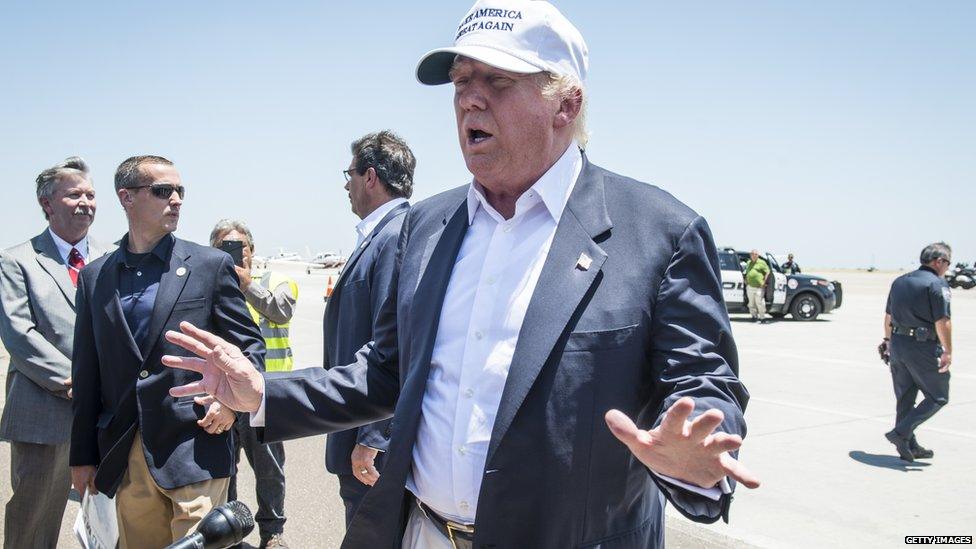
Donald Trump has made immigration his calling card
Thanks to Donald Trump's fiery comments about what he sees as the criminal proclivities of undocumented Mexican immigrants, this issue has moved to front and centre in the Republican primary battle.
Trump will likely have the most to say on the topic - repeating his insistence on a US-Mexico border wall and deportations - and it seems a good portion of the Republican electorate likes what they hear. The New Yorker has only climbed in the polls since his first remarks on the subject.
Practically every candidate considers Barack Obama's executive action deferring deportation of undocumented families of legal US residents to be unconstitutional, although they differ on whether legislation supporting such efforts should be considered.
Jeb Bush, Marco Rubio and Scott Walker have expressed past support for immigration reform efforts that include a pathway to legal residency for undocumented workers. That's anathema to much of the conservative base, although the US public at large seems to be in favour if done in conjunction with improved border security.
Who's sharp: Donald Trump
Who's on edge: Jeb Bush, Marco Rubio, Mike Huckabee, Scott Walker

The surveillance state
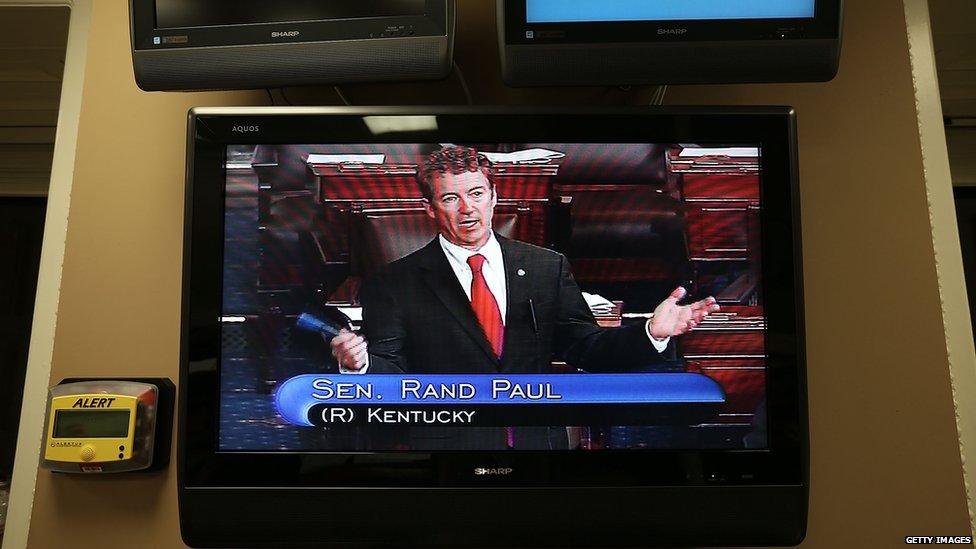
Rand Paul once made headlines with his Senate speeches condemning warrrantless government data collection
Once upon a time this was a big issue. The National Security Agency surveillance programme exposed by Edward Snowden was criticised by libertarians and anti-big-government conservatives and allowed Kentucky Senator Rand Paul to surge to prominence as a Republican presidential hopeful.
Now, however, the topic seldom comes up. Will Paul try to revive it? If so, look for a national security hard-liner like Chris Christie, a former federal prosecutor, to go on the attack. He's been the most vocal defender of the Patriot Act and similar national security legislation.
Who's sharp: Rand Paul, Chris Christie
Who's on edge: Whoever loses a Paul-Christie head-to-head

Education
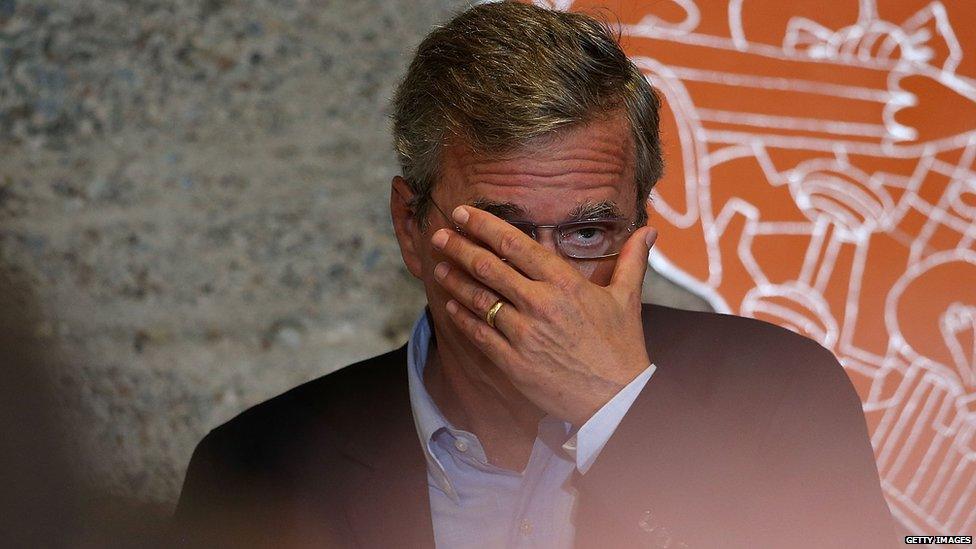
Jeb Bush is trying to avoid becoming the Republican face of Common Core standards
The Common Core programme, which started as a non-controversial attempt to streamline curriculum standards, will likely feature prominently in the debate, as it has become a four-letter word for many conservatives. They see it as federal meddling in local education systems.
Former Florida Governor Jeb Bush was an early and vocal backer of Common Core - and he's been trying to qualify his earlier support since before he became an official presidential candidate. He'd much rather talk about his efforts to advance publicly financed, privately run charter schools while governor.
Former Arkansas Governor Mike Huckabee was another Common Core supporter who has backed away from earlier positions and now calls for "abolishing" the federal Department of Education.
Walker and Christie also have walked back early acceptance for Common Core in their states. They, along with Bush and Ohio Governor John Kasich, have been outspoken advocates for school choice - allowing students to use public dollars to attend private schools.
Texas Senator Ted Cruz, unencumbered by past connections to the programme, has pledged to "repeal every word of Common Core" - a position that should prove popular with conservatives. He'll find it difficult to make good on his promise, however, since the standards weren't created by federal legislation.
Who's sharp: Ted Cruz
Who's on edge: Jeb Bush, Chris Christie, Mike Huckabee, Scott Walker

College affordability
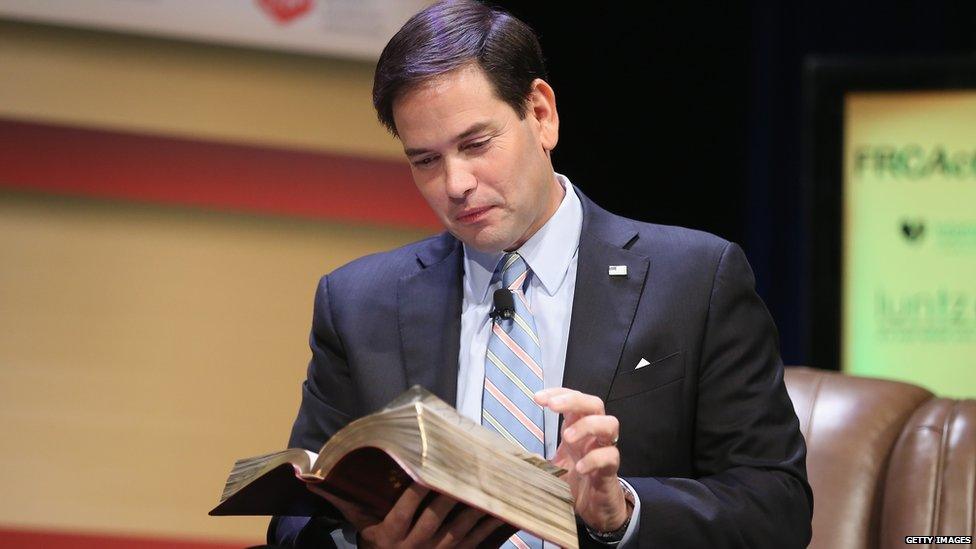
Marco Rubio has suggested the private sector can help with rising college tuition
Tuition costs have been soaring in the US, with the average cost of a public university education up more than 40% from 2004 to 2014 and average student debt for those who took out education loans at $35,000.
Rubio has pushed a plan to allow private groups to invest in a student's college education in exchange for a share of their future earnings.
Walker recently signed legislation trimming state funding for the Wisconsin public university system and removing lifetime tenure protections for university professors.
In July Kasich approved an Ohio bill that freezes state university tuition for two years.
Who's sharp: Marco Rubio, Scott Walker, John Kasich
Who's on edge: None

Iran nuclear deal
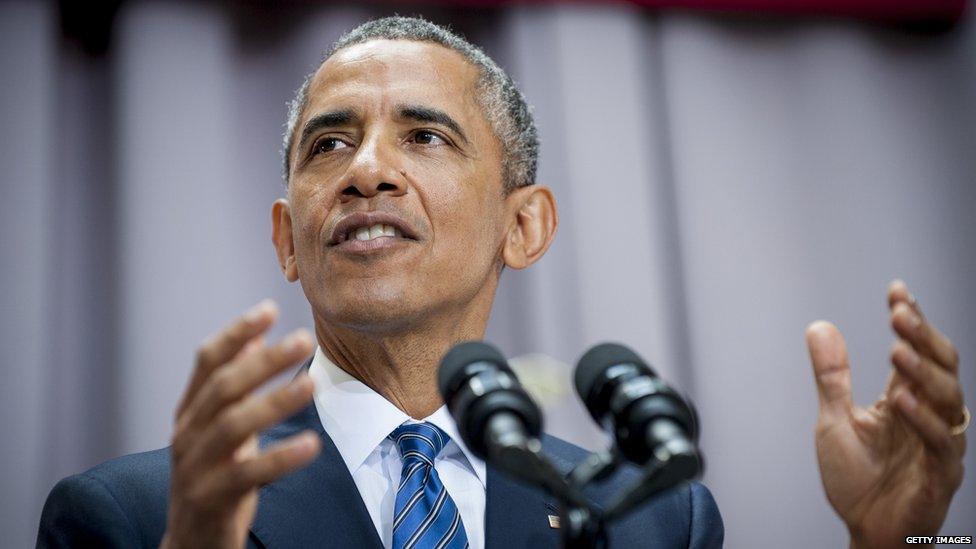
Barack Obama's criticism of Republican opposition to the Iran deal is sure to come up on Thursday
President Barack Obama's speech on Wednesday accusing the "Republican caucus" of making common cause Iranian hardliners to block the Iran nuclear deal will likely provoke a swarm of outrage across the debate stage on Thursday.
As a member of the Senate Foreign Relations Committee, Rubio has suggested that a military strike against Iran may be necessary. He'll be able to speak directly about his attempts in the Senate to block Mr Obama's deal.
Huckabee has taken Republican rhetoric on the topic to a roar, referencing the Holocaust when he said that Mr Obama's agreement was leading Israelis to the "door of the oven" - a comment he has not backed away from.
Paul is the one candidate who stands to lose when the topic turns to Iran. He's also on the Senate Foreign Relations Committee, and although he has now turned against the nuclear deal, he has said he's still in favour of continued direct negotiations with the Iranian government.
Who's sharp: Marco Rubio, Mike Huckabee
Who's on edge: Rand Paul

The economy
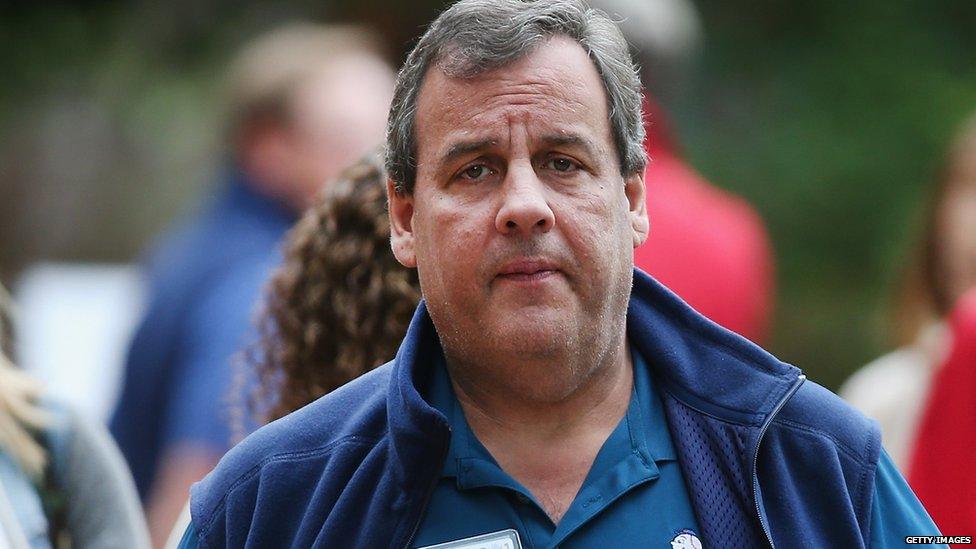
New Jersey's economic isn't a bright point for Chris Christie's candidacy
Despite all the media buzz around foreign policy and immigration, polls continue to indicate that the single most important issue for Republican voters is the economy.
Bush has promised as president he will see to it that the US economy grows by 4% annually instead of its current 2% level. He hasn't exactly spelled out how he'll do it, although it will likely involve personal and corporate tax reform. He says his "pro-growth" policies helped Florida's economy expand at a similar rate while he was governor.
Trump touts his business acumen as evidence that, unlike traditional politicians, he knows how to create jobs and build things.
Rubio's economic policies centre around lower income brackets, including expanding the tax credit for earned income to the working poor. Walker pitches budget cuts and government restraint as the key to a healthy economy and touts his success at balancing the Wisconsin state budget.
Christie may have a challenge when talking about his state's economy, external, as New Jersey revenues have declined and poverty levels have risen during his time in office. In 2014 the state ranked 46th in overall economic growth and New Jersey trails the US average in job growth
Who's sharp: Jeb Bush, Donald Trump
Who's on edge: Chris Christie

Abortion
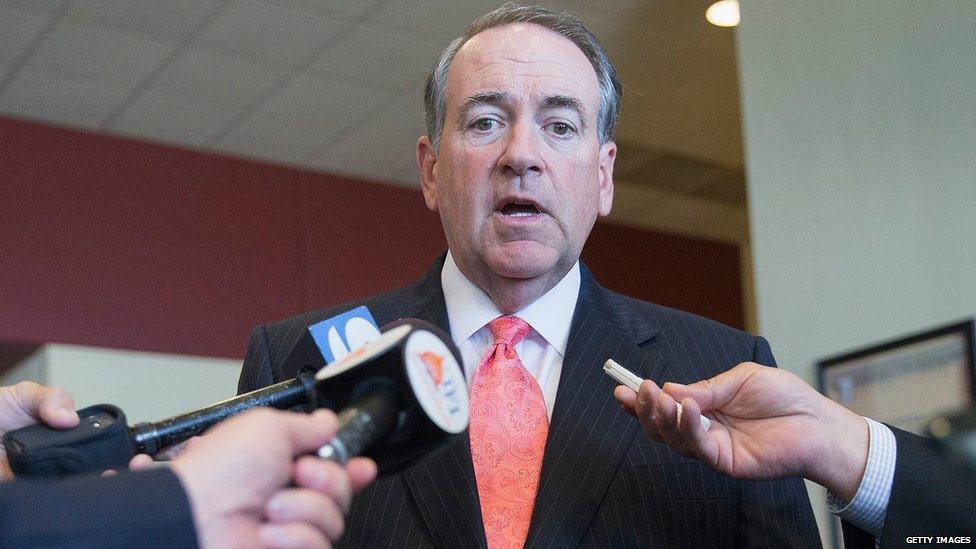
Mike Huckabee has been a pushing hard for the support of evangelical Christians
The secret recordings of Planned Parenthood officials discussing payments for the shipment of aborted foetuses to research facilities has prompted condemnation from every Republican candidate in the field.
Paul - despite his sometimes iconoclastic position on social issues - took a prominent role in the failed attempt by the Senate to cut off the group's government funding, as did Cruz.
Huckabee has been an outspoken advocate of a constitutional amendment to ban abortion and signed a law prohibiting late-term abortions while governor of Arkansas.
For a long time Trump supported abortion rights, but in 2012 he reversed himself, explaining that his mind was changed after hearing personal stories from people who decided not to have abortions. He now says the Republicans should shut down the federal government if that's what it takes to stop funding for Planned Parenthood.
On Tuesday Bush drew criticism when he said he's "not sure we need half a billion dollars for women's health issues". While his comments at the Southern Baptist Convention were well received, he has since claimed he misspoke. His remarks on the topic will be closely watched on Thursday.
Who's sharp: Mike Huckabee, Rand Paul, Ted Cruz
Who's on edge: Jeb Bush, Donald Trump

Healthcare
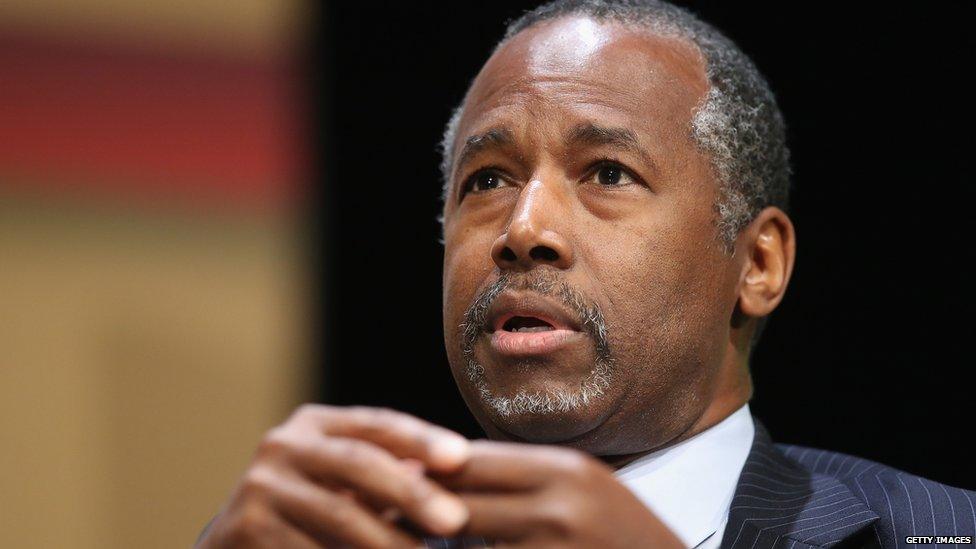
Ben Carson, a retired physician, is an outspoken critic of Obamacare
When it comes to healthcare issues, it's all Obamacare all the time for Republicans. Every candidate wants to do away with it, replacing the mandates and coverage guarantees with some combination of healthcare savings accounts and greater interstate competition between insurance companies.
Ben Carson, an accomplished physician, shot to fame at a National Prayer Breakfast in 2013 when, with Mr Obama in attendance, he offered a sharp criticism of Democratic healthcare reform efforts from a doctor's perspective - something he'll likely repeat during the debate.
If there's one candidate who is most closely associated with the battle against Obamacare, however, it's Cruz. He conspired with hard-core Tea Party conservatives in the House of Representatives in November 2013 to make defunding Obamacare a requirement for passing a federal budget, directly leading to the shutdown battles of that autumn.
The healthcare issue may be a point of weakness for Kasich, who angered conservatives in his state when he approved Ohio's Obamacare-funded expansion of Medicaid coverage for the poor.
The notable outlier, again, is Trump, who opposes Obamacare but has said he's in favour of nationalised single-payer healthcare in the past.
That this hasn't disqualified him in the eyes of Republican voters just shows how crazy this campaign has been so far.
Who's sharp: Ben Carson, Ted Cruz
Who's on edge: John Kasich, Donald Trump

Republicans in the 2016 presidential race
